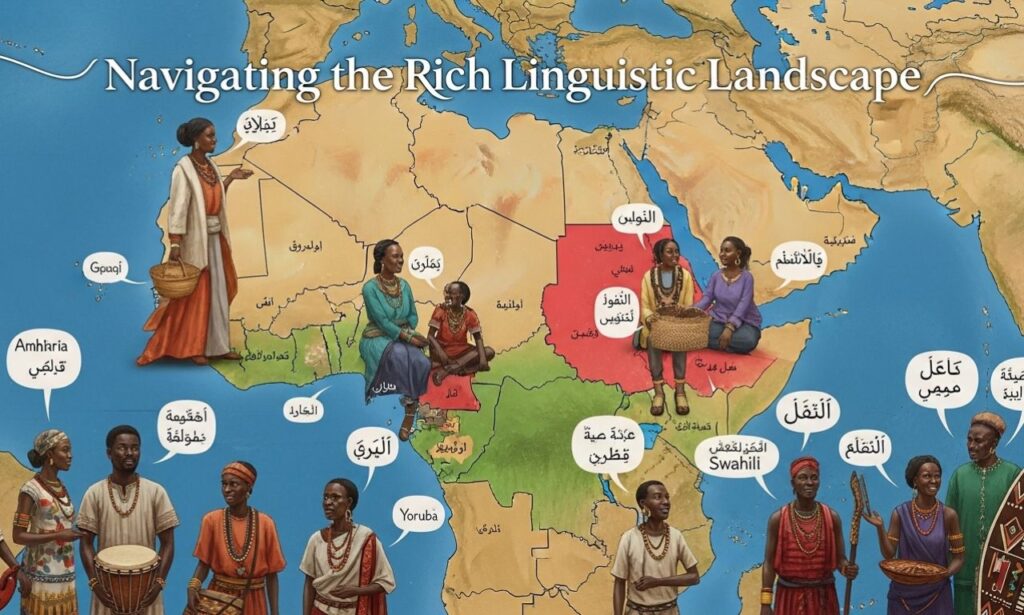Africa is a continent bursting with life, culture, and diversity. It’s home to over 2,000 distinct languages that tell the stories of its people. Each language reflects unique traditions, values, and histories. But when we think about translation or communication in this vibrant landscape, one term often comes up: English to African.
What does it mean? How do we navigate through such a rich tapestry of dialects? Understanding the journey from English to African languages opens doors not just for effective communication but also for deeper connections with cultures that have shaped human history. Let’s dive into this fascinating world and discover what makes the linguistic landscape of Africa so extraordinary!
What is English to African?
English to African refers to the process of translating English into various African languages. It’s more than just a linguistic conversion; it’s about bridging cultural gaps and fostering understanding.
Africa is home to over 2,000 distinct languages, each with unique nuances and expressions. This diversity makes translation complex but enriching.
When we say “English to African,” we acknowledge that there isn’t one single language or dialect but a tapestry of languages. Each carries its own history, culture, and identity.
Understanding this concept means recognizing the importance of context in communication. Words don’t always translate directly; they resonate differently across cultures.
Embracing English to African translations helps preserve these languages while promoting dialogue among diverse communities. It highlights the need for accurate representation in our increasingly interconnected world.
The diversity of African languages
Africa is a tapestry of languages, with over 2,000 distinct tongues spoken across the continent. This incredible diversity reflects the rich cultural heritage and history of its people. From North Africa’s Arabic dialects to Sub-Saharan languages like Swahili and Zulu, each language carries unique stories and traditions.
The linguistic landscape varies tremendously from one region to another. For instance, Nigeria alone boasts more than 500 languages. The complexity doesn’t just lie in numbers; it’s also about the intricate sounds and structures that define each language.
Many African communities value their languages as vessels of identity. They don’t merely communicate; they express worldviews shaped by centuries of experience. Learning these languages can offer profound insights into diverse ways of thinking and being in the world—an invitation to understand humanity at its core.
The influence of colonialism on African languages
Colonialism left an indelible mark on African languages. European powers imposed their languages, reshaping communication and cultural identity across the continent. As colonizers established dominance, local dialects often took a backseat.
Many indigenous languages faced decline under colonial rule. In some regions, native speakers switched to English or French for education and trade opportunities. This shift eroded traditional language skills and practices.
Ironically, colonialism also sparked linguistic blending. Pidgins and creoles emerged as communities adapted to new social realities. These hybrid forms reflect resilience amidst adversity.
Today, remnants of that colonial past linger in vocabulary and syntax within many African languages. However, efforts are underway to reclaim these lost identities through revitalization initiatives.
The struggle against linguistic imperialism continues as people seek pride in their mother tongues while navigating modernity’s challenges. The journey towards preserving Africa’s rich linguistic heritage is both complex and vital for future generations.
Efforts to preserve and promote African languages
Across the continent, various initiatives are taking root to preserve and promote African languages. Grassroots movements play a crucial role, often led by passionate individuals who understand the cultural significance of their native tongues.
Educational programs are being developed that integrate local languages into school curricula, ensuring that children learn both academically and culturally. This approach nurtures pride in heritage from an early age.
Digital platforms have also emerged as powerful tools for language preservation. Apps and websites dedicated to African languages make learning accessible worldwide, connecting speakers with learners.
Cultural festivals celebrate linguistic diversity through storytelling, poetry, and music. Such events foster community engagement while highlighting the beauty of African dialects.
Collaborations between governments and NGOs aim to create policies that recognize indigenous languages officially. These efforts show promise in revitalizing interest among younger generations eager to connect with their roots.
Benefits of learning an African language
Learning an African language opens doors to rich cultural experiences. Each language carries its own stories, traditions, and worldviews that deepen understanding of diverse communities.
It enhances cognitive skills too. Studies show that bilingualism improves memory retention and problem-solving abilities. Engaging with an African language can sharpen your mind while expanding your communication horizons.
Connecting with locals becomes easier when you speak their language. It fosters trust and creates meaningful relationships. People appreciate when others make the effort to understand their culture through language.
Moreover, it can boost career opportunities in a globalized economy. Many organizations seek individuals who are multilingual, especially in regions where African languages thrive.
Immersing yourself in these languages enriches personal growth. You’ll gain insight into different ways of thinking and living—a truly transformative experience.
Tips for learning an African language
Immerse yourself in the language. Surrounding yourself with native speakers can dramatically improve your skills. Join local communities or online groups where the language is spoken.
Use multimedia resources. Watch movies, listen to music, and follow podcasts in your chosen African language. This not only boosts listening skills but also exposes you to cultural nuances.
Practice daily, even if it’s just for a few minutes. Consistency is key when learning a new tongue.
Keep a journal in the language you’re studying. Writing helps reinforce vocabulary and grammar rules while allowing you to track your progress over time.
Don’t hesitate to make mistakes; they’re part of the learning process! Engage with locals who will appreciate your efforts and offer constructive feedback.
Embracing the linguistic richness of Africa
Africa is a tapestry of languages, each thread vibrant and unique. Embracing this linguistic richness opens doors to understanding diverse cultures and histories.
Every language carries stories, traditions, and wisdom passed down through generations. When we engage with these languages, we connect more deeply with the people who speak them.
Learning to communicate even in basic phrases can foster friendships that transcend borders. It encourages mutual respect and appreciation for different worldviews.
Moreover, as global citizens, recognizing Africa’s linguistic diversity enriches our own lives. It broadens perspectives and invites curiosity about unfamiliar customs.
By valuing African languages, we’re not just preserving heritage; we celebrate creativity in expression. This journey into the heart of Africa’s wordscape enhances personal growth while honoring the continent’s vast cultural wealth.
Conclusion
Language is a powerful tool that connects cultures and fosters understanding. The journey from English to African languages opens up a rich tapestry of sounds, meanings, and histories. With over 2,000 distinct languages spoken across the continent, each one carries its own unique story and perspective.
Navigating this linguistic landscape not only enhances personal growth but also deepens our appreciation for diverse cultures. As we strive to preserve and promote these languages, we contribute to keeping their legacies alive for future generations.
Embracing an African language can lead to new friendships, opportunities, and insights into different ways of life. Whether it’s through formal education or self-study resources available online, there are countless pathways to explore this vibrant world.
Learning an African language is more than just acquiring vocabulary; it’s about connecting with people on a deeper level. It enriches our understanding of humanity itself.
As you embark on your own journey towards mastering an African language or simply appreciating its beauty from afar, remember: every word learned is a step towards bridging gaps between communities and fostering unity.






